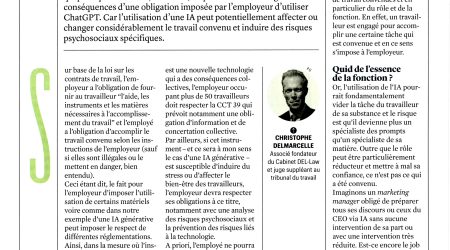Social elections it is already time to think about it... (Trends 11-10-2022)
Posted the 2 December 2022The next social elections will in principle take place in May 2024 subject to confirmation.
However, to determine whether or not a company should set up a works council (CE) or a committee for prevention and protection at work (CPPT), it is necessary to assess whether the thresholds of 50 or 100 workers respectively are exceeded at the level of a given "technical operating unit" (UTE).
In short, the UTE is an entity that enjoys a certain economic and social autonomy. Sometimes it coincides with the legal entity but in some cases a legal entity can have several UTE's and even two distinct legal entities can form a UTE.
Admittedly, provided that the next social elections do indeed take place in May 2024, the procedure will actually start in December 2023.
But this means that the end of 2022 and especially the year 2023 will be strategic from two points of view for employers.
On the one hand, subject to a modification (discussions are underway within the CNT to set the practical terms of the next elections) it is on the average of the Dimona declarations for the last quarter of 2022 and the first three quarters of the year 2023 that it will be necessary to determine whether the thresholds of 50 or 100 workers for the establishment of the CPPT and CE respectively have been reached. Please note that since the previous social elections, the reference period is anticipated by one quarter because previously only the 4 quarters of the year preceding the elections were taken into account. For companies that are close to these thresholds and would like to avoid setting up a CPPT or a Works Council, it will therefore be necessary to closely monitor commitments and exits over this period and even use external consultants. In addition, the second quarter of 2023 would be decisive for the use of temporary workers because it is over this last quarter that, barring any changes, it will be necessary to calculate the average of the temporary workers who would be employed - excluding replacement contracts - in the company in order to 'add to the average of all workers. Here too it is a novelty.
(Christophe Delmarcelle in Trends 11-10-2022)
Related articles

Is an employer allowed to mandate the use of artificial intelligence tools by employees ? (Trends, 17-07-2025)

Caution if a former colleague opposed to your employer asks you to testify in their favor
